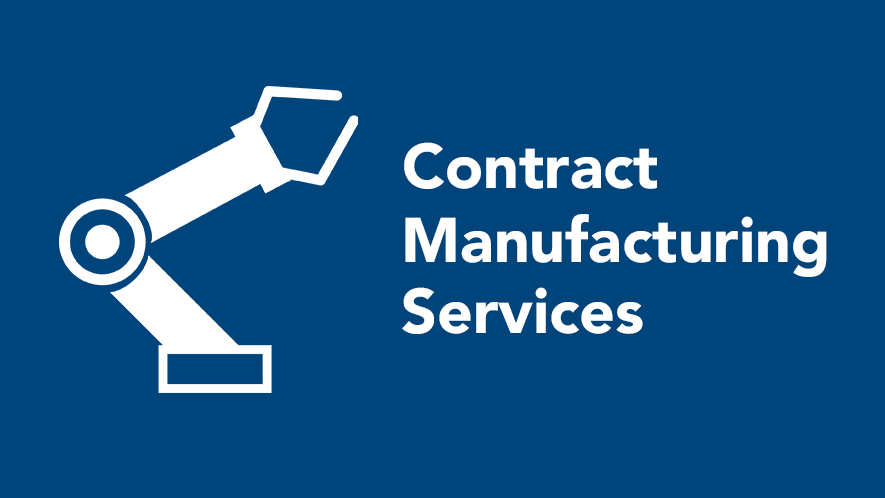Risk Management and Innovation: Contract Manufacturing
Currently in rapidly changing business landscape, the meeting point of risk management and innovation has never been more crucial. Companies face the constant challenge of balancing the need for cutting-edge products with the inherent risks associated with development and manufacturing. This is where contract manufacturing emerges as a game-changing solution. By joining forces with specialized manufacturers, businesses can focus on their key capabilities while taking advantage of the expertise and resources of a dedicated production partner.
Contract manufacturing offers a range of benefits that drive both efficiency and innovation. It allows companies to expand rapidly, reduce operational costs, and access advanced technologies without the burden of substantial capital investment. In this article, we will explore the top benefits of contract manufacturing , emphasizing how it can transform manufacturing strategies and foster a culture of innovation while effectively managing risks.
Grasping Contract Production
Manufacturing by contract is a operational strategy in which a firm initiates a contract together with another to manufacture goods on its behalf. This approach allows businesses to utilize the skills and infrastructure of expert manufacturers without the need for significant financial outlay in manufacturing plants. Companies can concentrate on their core competencies, such as product design and promotion, while counting on their manufacturing collaborators to handle productivity and growing capacity.
This cooperation often leads to improved product quality and innovation. By collaborating with manufacturers that have cutting-edge technology and techniques, businesses can gain improved processes and materials that can elevate the resulting item. Additionally, manufacturing partners may provide valuable insights and innovative solutions, providing an edge in fierce markets. The flexibility of this model can also enable more immediate responses to industry changes and shifts.
Moreover, contract manufacturing significantly reduces operational risks linked to owning and operating production facilities. Companies can lessen the instabilities connected to production costs, equipment maintenance, and labor issues. This flexibility allows businesses to adjust production levels based on market conditions avoiding fixed costs. Overall, contract manufacturing serves as a key resource for companies striving to enhance operational efficiency and encouraging innovation in their product offerings.
Benefits of Outsourced Production in Managing Risks
Outsourced production significantly minimizes operational risks for businesses. By working with expert manufacturers, firms can avoid the high costs associated with maintaining their own factories. This enables firms to manage resources more effectively, focusing on core activities such as research and progression or advertising. Furthermore, outsourced producers often possess advanced tech and expertise, leading to higher quality products and lessening the risk of manufacturing mistakes.
Moreover, outsourced production enhances flexibility and expandability. Companies can quickly adjust production volumes based on market demand without the long lead times and financial obligations necessary for scaling internal operations. This responsiveness helps firms respond to shifts effectively, cutting the risks of overproduction or running out of stock. As a result, firms can maintain a more efficient inventory and optimize cash flow, giving them a market advantage.
Lastly, engaging in outsourced production helps lessen supply chain risks. By diversifying the production base and employing multiple suppliers, companies can buffer against disturbances, such as environmental issues or government turmoil. Additionally, knowledgeable contract manufacturers typically have well-developed networks that improve sourcing and logistics, further minimizing risks associated with raw material availability. This strategic approach facilitates consistent product delivery and strengthens long-term business sustainability.
Catalyzing Progress via Collaborative Alliances
Outsourced production drives advancement by permitting companies to prioritize their key skills while utilizing the expert skills of their partners. By working together with manufacturers who possess cutting-edge technologies and capabilities, businesses can improve their product development processes. This synergy allows firms to get hold of new concepts and solutions that may not be viable if they were managing production in-house. As a result, products can be introduced more quickly, meeting market needs and responding to sector shifts more efficiently.
In addition, strategic partnerships in contract manufacturing often lead to shared resources and expertise. Companies can leverage the latest advancements in manufacturing techniques, materials, and procedures without the major capital outlay involved in retooling their facilities. This partnership encourages ongoing improvements and creative answers, making it easier for businesses to maintain a competitive edge. With a commitment to mutual growth, partners can experiment with product concepts and capabilities while mitigating uncertainties effectively.

In conclusion, the connection between companies and contract manufacturers can turn into a driver of game-changing ideas. By merging skills and insights, businesses can explore groundbreaking projects and potentially revolutionary products that may otherwise be out of reach. This collaborative path not only encourages creativity but also establishes a foundation for sustainable growth in an ever-evolving marketplace.